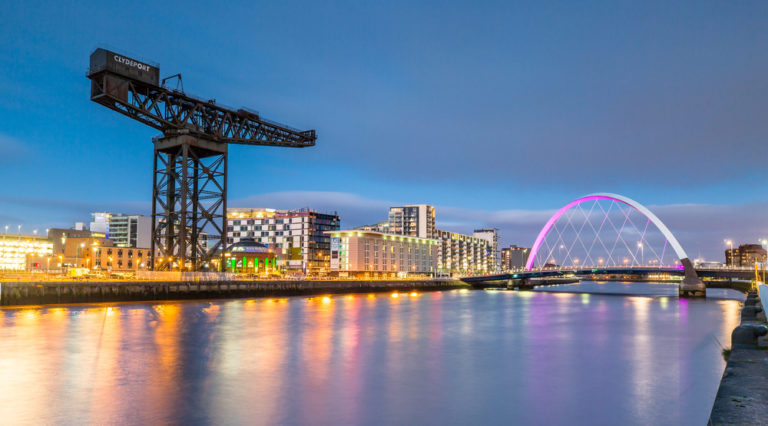+353 (0)21 4551326
info@actionzero.com
Home » Knowledge Base » What is net zero carbon?
What is net zero carbon?
A helpful guide on achieving net zero
Now that climate change is firmly at the forefront of our minds, you’ve probably come across the term ‘net zero’ carbon. It’s a term that continually crops up in relation to battling climate change, but what exactly does it mean?
In this guide we’ll explore the term ‘net zero’ and explain what it means, why it’s important to the future of the planet, and offer some insight into how net zero carbon can be achieved.
What is net zero carbon?
Many people hear the term ‘net zero’ and think it refers to the process of completely eliminating greenhouse gas emissions, whether that’s from a business, business process, a city, or an entire country.
In fact, net zero isn’t about eliminating emissions altogether. Instead, it’s about striking a balance between the amount of carbon emissions you produce and the amount you remove from the atmosphere.
All of the emissions you’re producing, whether from energy use, transportation, or manufacturing, must not exceed the amount you’re taking away. To reach net zero carbon emissions, any excess emissions must be offset by planting trees or capturing and storing carbon dioxide.
Why is net zero carbon important?
Reaching net zero carbon emissions is important for two reasons. First, it is essential to reduce greenhouse gas emissions in order to prevent the worst effects of climate change.
Climate change is a serious threat to our planet. The more greenhouse gas emissions we produce, the more severe the effects of climate change will be.
The Paris Agreement set a goal of limiting global warming to no more than 2 degrees Celsius over pre-industrial levels, but preferably around 1.5 degrees. However, if we continue emitting greenhouse gases at the current rate, we will reach that limit in just a few decades.
Second, reaching net zero has many benefits for businesses and Governments. The UK and Ireland have both committed to reaching net zero by no later than 2050, with some areas to be made carbon neutral by 2030. That means there are incentives in place for businesses and other organisations to help Governments realise those targets.

How does net zero carbon help us fight climate change?
Greenhouse gas emissions are the main driver behind climate change – they’re created when the burning of fossil fuels traps carbon dioxide in the atmosphere. Trap enough carbon dioxide, and the planet begins to heat up. We’re now experiencing that phenomenon on a grand scale.
To prevent catastrophic climate change, we need to reduce carbon emissions dramatically. That’s why reaching net zero carbon emissions is so critical in the battle against global warming.
By striving to reach net zero carbon emissions, businesses and Governments can show leadership in the fight against climate change. By pledging to reach net zero, you’re vowing not to contribute to local or global carbon emissions, and sending a clear message that you care about the environment, the planet, and the future of our world.
What is the benefit of reaching net zero carbon emissions?
For Governments
Reaching net zero carbon emissions can benefit Governments in several ways. For one, it sends a strong message to the public that they are serious about fighting climate change and protecting the world for future generations.
Another benefit is that reaching net zero carbon emissions allows governments to take advantage of various economic opportunities, including new jobs in renewable energy sectors, increased tax revenue, and reduced energy costs.
For businesses
When a business commits to reaching net zero carbon emissions, they often enjoy a reputational boost and improved public image. That can increase public trust in their organisation, which can lead to more tangible benefits down the line.
The road to net zero also offers businesses opportunities for growth in several areas, whether it’s the chance to participate in government incentive programs, creating new job opportunities in the renewable energy sector, or even increasing profits from selling green products and services to new audiences.
For the planet
Most important of all, reaching net zero carbon emissions is vital for protecting the planet against climate change. If we do not reduce our greenhouse gas emissions, the world will experience more extreme weather events, like floods and hurricanes, and the Arctic will continue to melt.
Only by reaching net zero carbon emissions, and significantly lowering the amount of carbon dioxide we release into the atmosphere, can prevent the most severe effects of climate change from happening.
How can my business reach net zero emissions?
There is no catch-all solution to reaching net zero carbon emissions – it happens in several different ways. Broadly speaking, however, you want to reduce the amount of carbon emissions you’re producing, and offset any carbon that is left over.
Below are some effective methods for helping your business reach its net zero target:

Reducing waste
When you reduce waste, it has the immediate effect of reducing your carbon emissions. Remember that energy was used to produce your products, so less waste means less energy needed.
However, there are also longer-term benefits for businesses that reduce their waste. For one, fewer raw materials will need to be harvested or mined in order to produce the same amount of products – this means less waste and fewer carbon emissions from the extraction process.
Increasing electrification
When you electrify a process, you replace a fossil fuel with an electric power source. This has the immediate effect of reducing carbon emissions, as electric power is much cleaner than fossil fuels – especially from renewable sources like solar and wind.
Right now, just 8% of global electricity is generated by solar and wind power. In the future, businesses and Governments will need to move away from fossil fuels and switch to greater electrification if they are to meet their net zero goals.
Decarbonising heat
Industries from agriculture to manufacturing rely heavily on the process of heating water. That process can be carbon-intensive, which is why the decarbonisation of heat is so important.
Decarbonising heat means creating a way for industries to heat water on a large scale without employing the traditional method of burning fossil fuels.
Action Zero has created a turnkey solution for decarbonising heat, the Action Zero EscoPod, which allows industries from agriculture to manufacturing to cut carbon emissions from their heating process by as much as 70%.
Carbon sequestration
Carbon sequestration is the process of capturing and storing carbon dioxide emissions. It’s key to reaching net zero emissions because it helps businesses offset the carbon they’re producing.
Carbon sequestration allows businesses to store excess carbon in a harmless way, from storing carbon dioxide emissions underground, to turning carbon dioxide into gas for fizzy drinks. Sequestration prevents carbon from entering the atmosphere and means your emissions aren’t contributing to climate change.

Where can I get more information on what net zero means for me?
Governments and businesses all over the world are learning more about carbon neutrality, and beginning to realise that achieving net zero targets will be critical to their future viability.
If you’re a business leader who wants to know more about net zero and what it means for you, we can help. At ActionZero, our team of sustainability experts offer organisations the tools and knowledge they need to decarbonise quickly at at a low cost.
To find out more about how your business can set and achieve its net zero targets, get in touch with us today.
Explore our knowledge base










